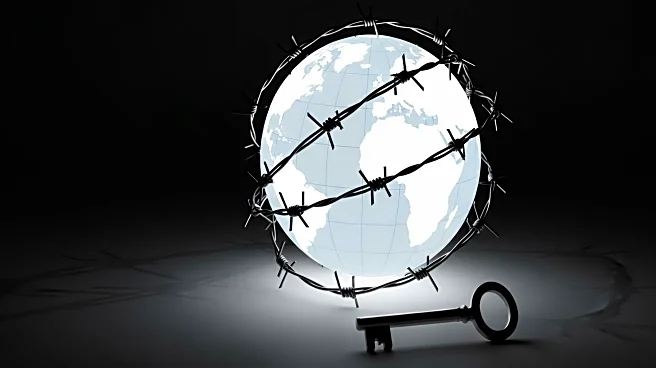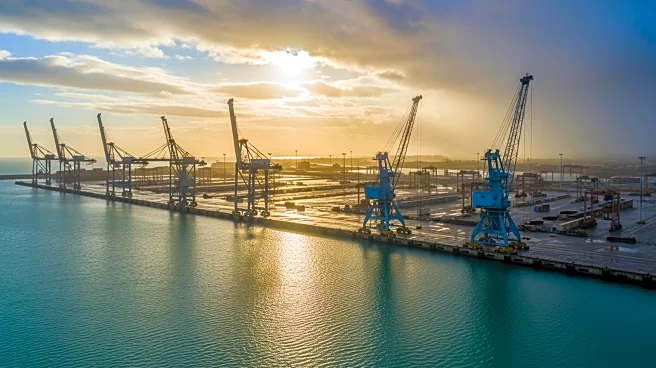What is the story about?
What's Happening?
Uganda is set to receive Kilmar Abrego Garcia, a construction worker who became emblematic of President Trump's stringent immigration policies. Garcia was wrongfully deported to El Salvador in March and later returned to the U.S., where he faced human smuggling charges. He has pleaded not guilty. Uganda, one of four African nations agreeing to accept deportees from the U.S., will receive Garcia despite his lack of cultural ties to the country. Ugandan officials have expressed a preference for receiving individuals originally from Africa and without criminal backgrounds. The terms of the agreement between Uganda and the U.S. remain undisclosed, and the deportation has sparked incredulity among some Ugandans.
Why It's Important?
This development highlights the international ramifications of U.S. immigration policies under President Trump. The deportation agreement with Uganda may serve as a diplomatic tool for Uganda's President Yoweri Museveni, who faces international scrutiny over human rights issues. The arrangement could bolster Museveni's standing amid upcoming elections, as he seeks to maintain power. The situation underscores the complexities of immigration enforcement and its impact on international relations, particularly with countries like Uganda that have young populations and are navigating their own political challenges.
What's Next?
The deportation of Garcia to Uganda may prompt further scrutiny of U.S. immigration policies and their global implications. Uganda's upcoming presidential election in January 2026 could be influenced by this agreement, as Museveni's administration may leverage the deal to counter international criticism. The broader impact on U.S.-Uganda relations and potential reactions from human rights organizations remain to be seen, as stakeholders assess the ethical and political dimensions of such deportation agreements.
Beyond the Headlines
The deportation agreement raises ethical questions about the treatment of individuals with no cultural ties to the receiving country. It also highlights the challenges faced by countries like Uganda, with young populations and limited infrastructure, in accommodating deportees. The situation may influence Uganda's domestic policies and international standing, as it navigates the balance between diplomatic agreements and human rights considerations.















